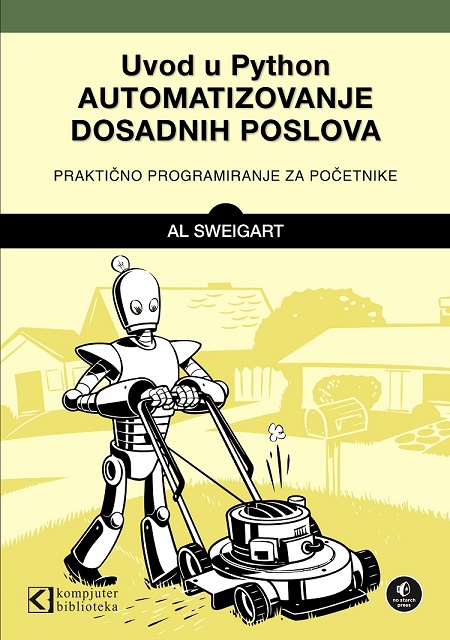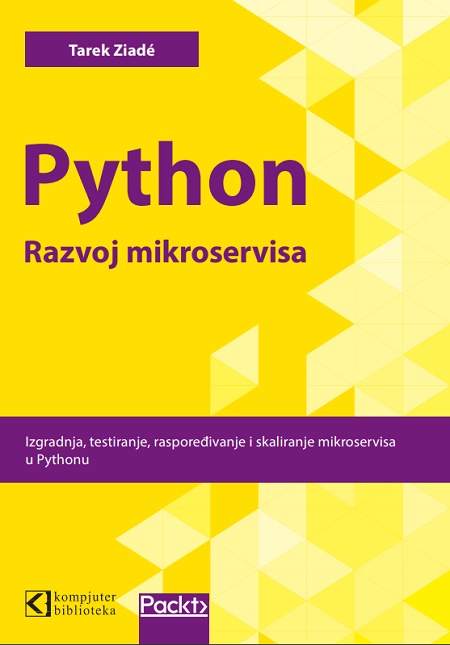

News
PEP 0508 -- Dependency specification for Python Software Packages
This PEP specifies the language used to describe dependencies for packages. It draws a border at the edge of describing a single dependency - the different sorts of dependencies and when they should be installed is a higher level problem. The intent is to provide a building block for higher layer specifications.
Articles, Tutorials and Talks
A Python Interpreter Written in Python
Byterun is a Python interpreter implemented in Python. This chapter will walk through the structure of the interpreter and give you enough context to explore it further. The goal is not to explain everything there is to know about interpreters --- like so many interesting areas of programming and computer science, you could devote years to developing a deep understanding of the topic.
Pyston Talk
A talk about the current status of Pyston and some of it's internal workings, such as our mini tracing-JIT.
Episode #35: Turbogears and the future of Python web frameworks
Do you have a new web project coming up? Are you thinking of choosing Django or maybe Flask? Those are excellent frameworks, but you might also want to check out TurboGears. It was created and released around the same time as Django. It lets you starts your project as a microframework (like Flask) and yet can scale up to a fullstack solution (like Django). It also has built-in support both relational DBs (via SQLAlchemy) and MongoDB. This week Alessandro Molina is here to tell us all about TurboGears!
Podcast.__init__ Episode 32 - Erik Tollerud on AstroPy
Erik Tollerud is an astronomer with a background in software engineering. He leverages these backgrounds to help build and maintain the AstroPy framework and its associated modules. AstroPy is a set of Python libraries that provide useful mechanisms for astronomers and astrophysicists to perform analyses on the data that they receive from observational equipment such as the mountain observatory that Erik was preparing to visit when we talked to him about his work. If you like Python and space then you should definitely give this episode a listen!
Python 3.5 type hinting in PyCharm 5
Python 3.5 introduces type hinting to help code-writing during development. Let's take a look at this feature and show it in action.
Of Interneting Trees with Python and Pi
Blot're.py is a thin Blot're client for Python. This library has similar capabilities to Blot're.js and makes it easy to connect all sorts of good stuff to Blot're. Good stuff like your household plants. This post provides a quick introduction to Blot're.py by example. We'll hook a plant up to Blot're using a Raspberry Pi and a simple moisture sensor.
BDD Testing a Restful Web Application in Python
This post is an introduction to behaviour-driven development (BDD) in Python, of a RESTful application using Flask web framework. Covers the syntax, structure and goals of BDD.
Getting started with Docker, Compose and Django
This guide shows you how to set up a Django application and development environment using Docker.
How to setup a data science environment in minutes using Docker and Jupyter
In this post, we'll cover the basics of Docker, how to install it, and how to leverage Docker containers to quickly get started with data science on your own machine.
Flappy Bird in 87 Lines of Python
Python's Hidden Regular Expression Gems
Optimizing Slow Django REST Framework Performance
Django Under The Hood Talks
Space Invaders created in 1.5 hours with Pygame
PyCon Ireland 2015 Videos
Books
Mastering PyCharm
If you know PyCharm but want to understand it better and leverage its more powerful but less obvious tool set, this is the book for you. Serving as a launch pad for those who want to master PyCharm and completely harness its best features, it would be helpful if you were familiar with some of Python's most prominent tools such as virtualenv and Python's popular docstring formats such as reStructuredText and EpyType.
How to Make Mistakes in Python
Even the best programmers make mistakes, and experienced programmer Mike Pirnat has made his share during 15+ years with Python. Some have been simple and silly; others were embarrassing and downright costly. In this O'Reilly report, he dissects some of his most memorable blunders, peeling them back layer-by-layer to reveal just what went wrong.
Interesting Projects, Tools and Libraries
CacheBrowser
A proxy-less censorship resistance tool. The core idea of CacheBrowser is to grab censored content cached by Content Delivery Networks such as Akamai and CloudFlare directly from their CDN edge servers, therefore, foiling censors' DNS interference.
Hacker Scripts
Based on a true story.
FIND
The Framework for Internal Navigation and Discovery (FIND) allows you to use your smartphone or laptop to determine your position within your home or office. You can easily use this system in place of motion sensors as its resoltion will allow your phone to distinguish whether you are in the living room, the kitchen or the bedroom, etc. The position information can then be used in a variety of ways including home automation, way-finding, or tracking!
ButterflyNet
ButterflyNet is an server-side batteries-included secure networking framework built upon asyncio.
Scikit Flow
This is a simplified interface for TensorFlow, to get people started on predictive analytics and data mining.
Refinery
A locally deployable open-source web platform for analysis of large document collections.
Flask-Blogging
A Markdown Based Python Blog Engine as a Flask Extension.
neural-art-tf
"A neural algorithm of Artistic style" in tensorflow.
dcgan_code
Deep Convolutional Generative Adversarial Networks.
ABlog
ABlog is a Sphinx extension that converts any documentation or personal website project into a full-fledged blog.
ImageColorTheme
Extract Color Themes from Images.
New Releases
pandas 0.17.1
This is a minor bug-fix release from 0.17.0 and includes a large number of bug fixes along several new features, enhancements, and performance improvements
MicroPython 1.5
Python 3.5.1rc1 Release
Django security releases issued: 1.9rc2, 1.8.7, 1.7.11
© Sva prava pridržana, Kompjuter biblioteka, Beograd, Obalskih radnika 4a, Telefon: +381 11 252 0 272 |
||